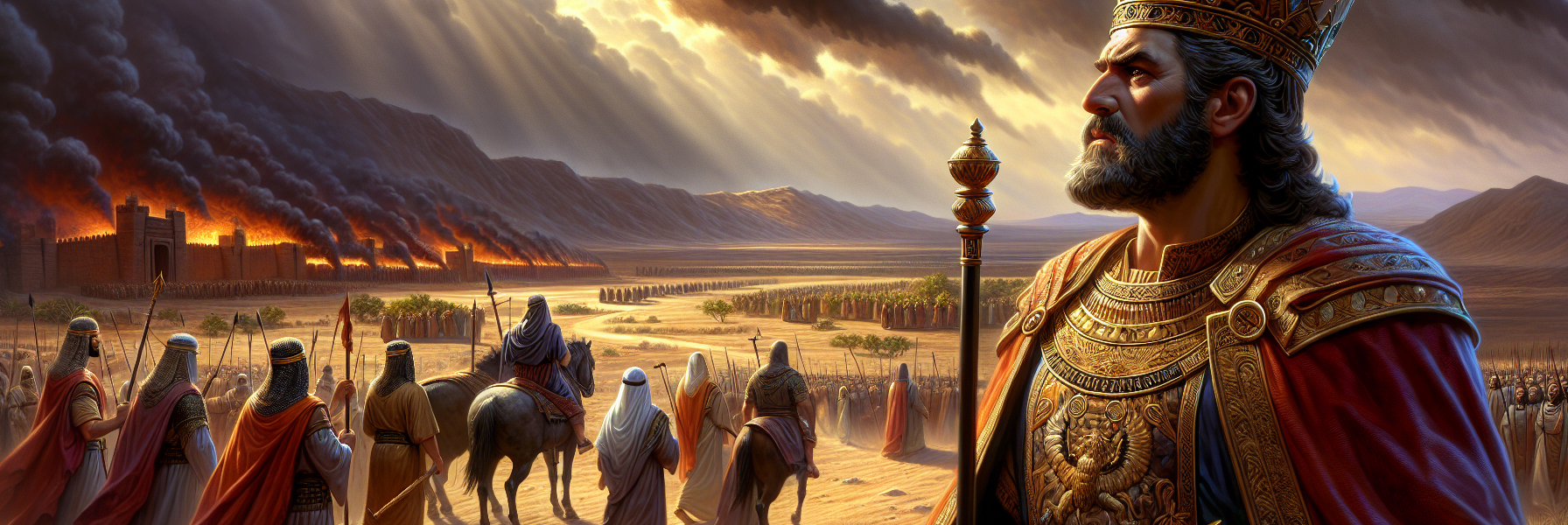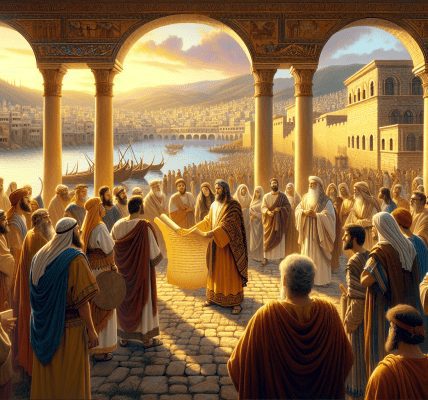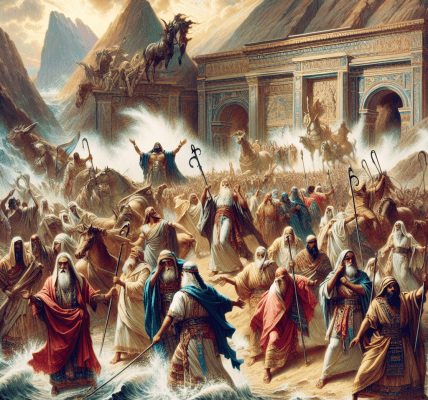**The Rivalry of Rachel and Leah: A Tale of Fruitfulness and Faith**
The sun hung low over the fields of Paddan-aram, casting long shadows across the tents of Jacob’s household. The air was thick with the scent of earth and livestock, a reminder of the blessings God had bestowed upon him. Yet within the confines of his family, a quiet storm brewed—one of longing, jealousy, and divine providence.
Rachel, the beloved wife of Jacob, stood at the entrance of her tent, her eyes fixed on the children playing nearby—Leah’s children. Her heart ached with a sorrow no words could soothe. Though Jacob loved her deeply, the Lord had closed her womb, while her sister Leah had borne him four sons: Reuben, Simeon, Levi, and Judah. Each birth was a fresh wound to Rachel’s spirit, a reminder of her barrenness.
One evening, as the campfire crackled and the stars emerged like scattered jewels in the heavens, Rachel could bear it no longer. She stormed into Jacob’s presence, her voice trembling with desperation. *”Give me children, or I shall die!”*
Jacob’s face darkened with frustration. *”Am I in the place of God, who has withheld from you the fruit of the womb?”* His words were sharp, but his eyes softened with pity. He knew her pain, yet he could not command the heavens to open.
Rachel, unwilling to surrender to despair, devised a plan. Following the custom of the time, she presented her maidservant Bilhah to Jacob, saying, *”Here is my servant; go in to her, that she may bear upon my knees, and that I too may have children through her.”*
Jacob consented, and in time, Bilhah conceived. When she bore a son, Rachel’s heart swelled with triumph. *”God has judged me,”* she declared, *”and has also heard my voice and given me a son.”* She named him Dan, meaning “judged.”
But Leah, seeing that she had ceased bearing, was not to be outdone. She, too, gave her maidservant Zilpah to Jacob as a wife. Zilpah bore a son, and Leah cried out in exultation, *”With good fortune!”* So she named him Gad.
Zilpah conceived again, bringing forth another son. Leah rejoiced, saying, *”Happy am I! For women have called me happy.”* And she named him Asher.
The rivalry between the sisters grew fiercer. One day, during the wheat harvest, Reuben ventured into the fields and found mandrakes—plants believed to aid fertility. He brought them to his mother Leah. When Rachel saw them, her desire flared anew. *”Please give me some of your son’s mandrakes,”* she pleaded.
Leah’s reply was laced with bitterness. *”Is it a small matter that you have taken away my husband? Would you take away my son’s mandrakes also?”*
Rachel, desperate, offered a bargain. *”Then he may lie with you tonight in exchange for your son’s mandrakes.”*
That evening, as Jacob returned from the fields, Leah met him at the outskirts of the camp. *”You must come in to me,”* she said, *”for I have hired you with my son’s mandrakes.”* Jacob, bound by the agreement, spent the night with her.
God heard Leah’s prayers, and she conceived yet again. She bore a fifth son and declared, *”God has given me my wages because I gave my servant to my husband.”* She named him Issachar.
Not long after, Leah conceived once more, bringing forth a sixth son. *”God has endowed me with a good endowment,”* she proclaimed. *”Now my husband will honor me, because I have borne him six sons.”* She named him Zebulun.
Afterward, Leah bore a daughter, Dinah, completing her fruitfulness.
Then, in the fullness of time, God remembered Rachel. He listened to her cries and opened her womb. At last, she conceived and bore a son. With tears of joy, she declared, *”God has taken away my reproach!”* She named him Joseph, saying, *”May the Lord add to me another son.”*
And so, the house of Jacob grew, each child a testament to God’s sovereignty—even in the midst of human strife. Though Rachel and Leah contended in jealousy, the Lord worked His purpose through their lives, building the foundation of the twelve tribes of Israel.
Through barrenness and blessing, through rivalry and redemption, the hand of the Almighty shaped their story—one of grace unfolding in unexpected ways.




